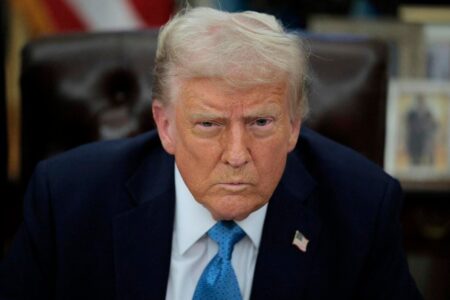Hylke Faber, CEO and Coach at Growth Leaders Network & award-winning author of Taming Your Crocodiles: Unlearn Fear & Become a True Leader.
Consider these three example leaders and their challenges:
George: “The priorities keep changing; I am distracted from the work I need to do.”
Mary: “I can’t get my colleagues to do what I need them to do.”
Michael: “I am not confident in the direction we are taking as a company.”
We all face challenges. What is yours today? And how can you empower yourself to respond in a way that will give you pride in your actions and peace in your heart?
The Disconnecting Crocodile
The primary function of our nervous system is survival. Therefore, our first impulse when challenged is about survival—physically and emotionally. “How can I get out of this situation unscathed? How can I make it go away as quickly as possible?” I call this survival impulse our “crocodile,” signifying the reptilian fight-flight-freeze brain that is hellbent on protecting our sense of safety.
The crocodile is fast and only uses a fraction of our wisdom power. It blinds us to the plethora of possible responses to our challenge and limits us to either a fight, flight or freeze reaction, depending on our makeup. Consider our three leaders: George, typically a fighter, just does his own thing and ignores what his managers are saying. Mary, more of a flight person, becomes overly nice and tries to convince by pleasing. Michael, a freezer, procrastinates when he has a lack of direction from above.
In crocodile mode, we are operating based on a fraction of our intelligence. What is the alternative?
The First Owl: Technical Manager
When you notice your crocodile is active—you will know because you will likely feel stressed—the first thing to do is to stop. Take a deep breath and press your inner pause button to take a step back from your crocodilian thinking and let a bigger perspective in. Consider how you could respond to the challenge. What is one thing you can do differently?
Enter higher wisdom, which I call our “owl.” We have varying levels of higher wisdom, the first being our more linear mind. Ron Heifetz, a Harvard professor, talked about this technical mindset, which we can think of as the “technical manager.” It focuses on the question, “How can I solve this now?”
For example, George might have a conversation with his manager and agree about what he should focus on no matter what. Mary could have a meeting with her colleague to discuss shared objectives and agree on accountability to get things done. Michael may look at what he wants to do and believes will contribute to his and the company’s success and do that.
Notice how a lot more power came online in each person simply because they paused and thought about one other thing they could do to solve the challenge.
The Second Owl: Adaptive Leader
As it turns out, a lot more wisdom awaits. All we need to do is connect with it. Enter the second owl: adaptive leader. The adaptive leader integrates I (self), we (others) and it (task and purpose) viewpoints. By considering these three different perspectives, we can bring a wider vantage point and more intelligence online. Consider these “open the aperture” questions when facing your challenge:
• I: What do I really care about? What is really at stake for me?
• We: What do they really care about? How can I support them?
• It: What is the higher purpose we are here to achieve? How can we make progress toward it?
Let’s say that George asked himself these questions and discovered the following:
• I: “I deeply value contributing to our customer. Frequent stops and starts are distracting me from doing my work. I need to re-ground myself in the higher purpose and make intentional decisions on how I spend my time.”
• We: “My manager who changes priorities is not the enemy. I realize we are working in a very dynamic market where we need to do rapid experiments and iteration. I need to speak with my manager about what we intend to achieve and how we can capture our learnings from our experiments more effectively.”
• It: “Our shared higher purpose is to help our clients have the best experience. I realize that even if not all my projects reach the client, we can keep learning together. I am contributing to the client.”
Reflecting on the above, George realized he needed to have more frequent conversations with his manager to share learnings and keep discussing together what needed focus and what needed to be put on the back burner. Previously, he had been approaching his work as a series of transactions. He’s now reframed his work to a series of purposeful learning interactions.
Convergent To Divergent
How do we leap from technical manager to adaptive leader? Technical manager thinking is still somewhat like crocodilian thinking in that it tends to be binary—this or that. It approaches issues as convergent problems, i.e., issues that have only a single solution, like 1+1=2.
But most issues are not 1+1=2 convergent problems. They are divergent opportunities, meaning there are multiple possible answers. In my experience, approaching our challenges with a convergent technical manager mindset can make us too narrow in our thinking, less inspired, and less connected to others and our purpose.
Conversely, approaching a challenge as a divergent, adaptive question can allow you to find more possibilities to consider. I have found that doing the I/We/It Open-the-Aperture inquiry helps. Also, challenging some of your limiting beliefs can open the door to more possibilities. Ask yourself the following when you next face a major challenge in your workplace:
• “What is a belief I have that keeps me stuck in narrow-minded thinking?” (For example, George believed his success was completing projects.)
• “Can I absolutely know this belief is true?’ (George realized that his contribution to the end user was much broader than his projects.)
• “What would be a truer belief I could operate from?” (George chose to see his success as contributing to purposeful interactions and learning.)
• What new possibilities emerge from this new belief?” (George felt more relaxed about changing projects. He also had deeper dialogues with his boss.)
Consider how you can activate your higher wisdom today. Higher wisdom requires us to pause, tame our crocodilian thinking, and open ourselves to the field of divergent possibilities.
Forbes Business Council is the foremost growth and networking organization for business owners and leaders. Do I qualify?
Read the full article here











